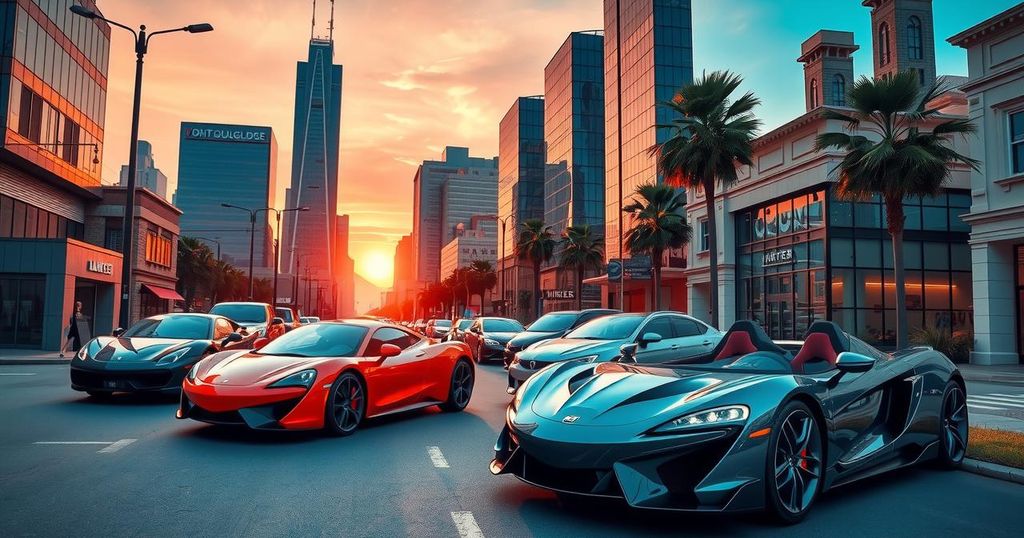Luxury Car Sales in India Reach New Heights Despite Economic Challenges

In FY25, India’s luxury car sales reached a record high of 51,406 units, with Mercedes-Benz leading the market. Despite economic slowdowns, the affluent class maintained strong demand for luxury vehicles, including electric models. JLR, BMW, and Lexus also saw growth, while Audi and Volvo faced sales declines due to supply constraints.
In FY25, economic challenges such as rising food inflation and stagnant wages have led budget-conscious consumers to hold off on purchasing vehicles. In contrast, the affluent class continued to drive luxury car sales, which reached new heights with a total of 51,406 units sold, up 3% from the 49,862 units in FY24, marking the highest annual sales in history.
Mercedes-Benz India dominated the luxury segment with sales of 18,928 units, representing its best performance. The luxury models, including the S-Class, Maybach, and AMG series, achieved a remarkable 34% growth. Electric vehicle (EV) sales also soared by 51%, with EVs making up 7% of total sales, indicating a significant shift in consumer preference towards sustainable options.
Popular models such as the AMG G 63 and the Mercedes-Maybach Night Series have seen exceptional demand, with some vehicles having a waiting period of up to one year. BMW India followed in second place with sales of 15,810 units, a 5% increase from FY24. Jaguar Land Rover (JLR) experienced a substantial 40% growth with sales of 6,183 units, surpassing Audi to become the third-largest luxury car seller in the Indian market.
The Land Rover Defender emerged as JLR’s top-selling model with a 90% sales increase, while the locally assembled Range Rover models also demonstrated impressive growth rates of 72% and 42%. Differentiating itself in the market, JLR commenced assembling four models at its Pune facility in May 2024, enhancing its operational efficiency.
Lexus, the luxury arm of Toyota, registered a notable 19% YoY growth, reaching remarkable monthly sales in March 2025, driven by strong demand for the NX and RX models. However, Audi experienced a decline in sales, dropping 15% to 5,990 units, affected by supply chain challenges. Similarly, Volvo saw its sales fall 51% YoY to 1,750 units, struggling with competition from other luxury brands, despite a global total of 70,737 vehicles sold in March 2025, which was down 10% compared to the previous year.
The luxury car market in India has experienced significant growth despite broader economic challenges. Key factors include an increase in affluent consumers prioritizing premium vehicles and a successful expansion in electric vehicle offerings. All automotive firms are benefitting from improved product availability and localized assembly, although some brands, like Audi and Volvo, face challenges with declining sales due to supply issues.
Original Source: www.livemint.com





